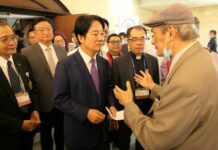August 15-23, 2011
Headline News
Human rights groups call for judicial reforms in face of unfair trials
Reported by Chiou Kuo-rong
Written by Lydia Ma
The “Hsichih Trio”, a case involving 3 suspects charged with the robbery and murder of Wu Min-han and his wife Yeh Ying-lan, has dragged on for 20 years. Though authorities claimed they had apprehended the suspects and resolved the case on August 14, 1991, much about this case remains mysterious and controversial because of claims that the defendants’ confessions were extracted through torture.
In April of 2011, the Supreme Court turned down again the High Court’s verdict that the suspects were not guilty due to lack of credible evidence. It had previously turned down the High Court’s verdict on November 12, 2010.
This latest decision meant the case would need to be retried from the beginning again and the 3 defendants’ fate will continue to be in limbo. However, a report from a criminal investigator surnamed Lee indicates that all evidence on the crime scene couldn’t prove the defendants were guilty. The report further stated that the only credible evidence is a fourth suspect whose admission of guilt led to his execution years ago.
Commenting on this case, Judicial Reform Foundation’s CEO Lin Feng-cheng said the courts should treat these defendants as innocent until proven guilty and stop the use of torture.
He also reminded justices of another recent mistrial and wrongful execution that should’ve served as a precautionary tale. Lin was referring to the Chiang Kuo-ching trial where Chiang was charged, sentenced, and executed in 1997 for raping and killing a girl in 1996. It wasn’t until many years after his execution that DNA evidence pointed to another suspect.
On August 13, 2011, more than 200 representatives from Judicial Reform Foundation, Amnesty International, Taiwan Alliance to End the Death Penalty, and Taiwan Association for Human Rights braved a rainstorm to protest against a dysfunctional judicial system. Using their bodies to shape the characters “Not Guilty” on the park adjacent to Taipei 101, they cried out that all 3 defendants were innocent.
In an exclusive interview with Taiwan Church News, Lin Yung-song, another Judicial Reform Foundation’s board member and an elder of Chinan Presbyterian Church, said that wrongful sentencing in similar cases abound in Taiwan. “It’s very evident that our justices and our judicial system do not recognize that a defendant is innocent until proven guilty.”
Though this guideline is taught in schools and appears in legal textbooks, it isn’t reinforced in the judicial system because prosecutors aren’t required to show substantial evidence, said Lin.
“When judging, the importance of confessions should be placed last and material, substantial evidence placed first,” said Lin. But that has so far not been the standard operational procedure in criminal investigations, paving the way for many tragic and wrongful sentences.






